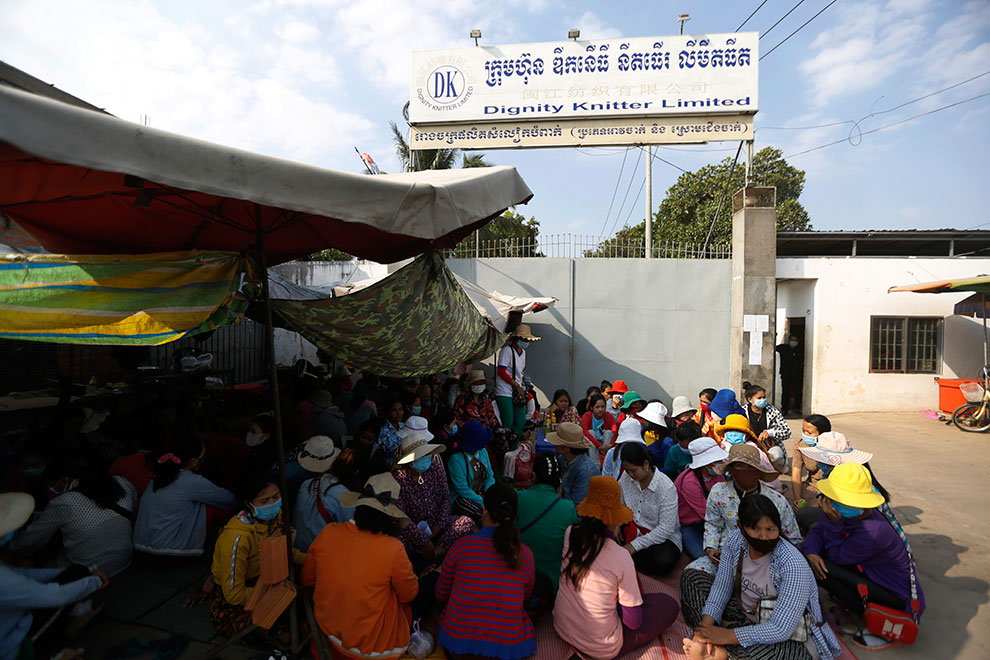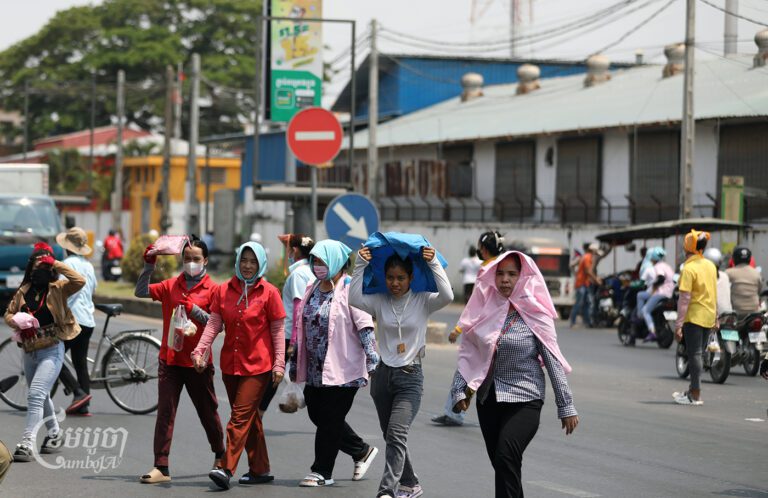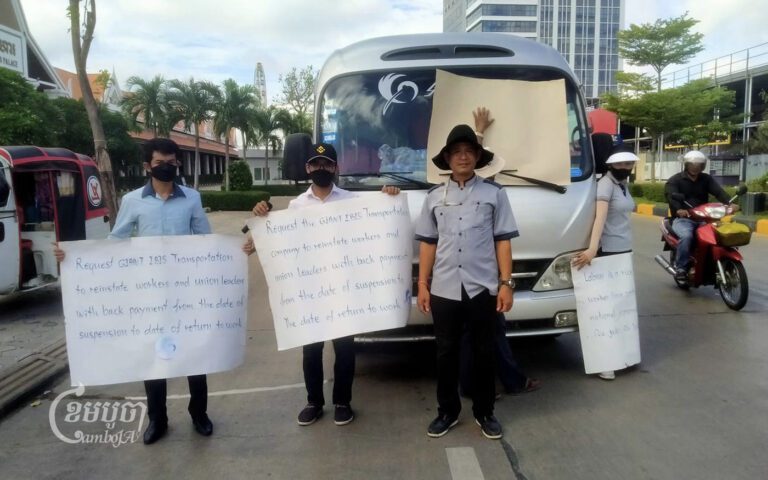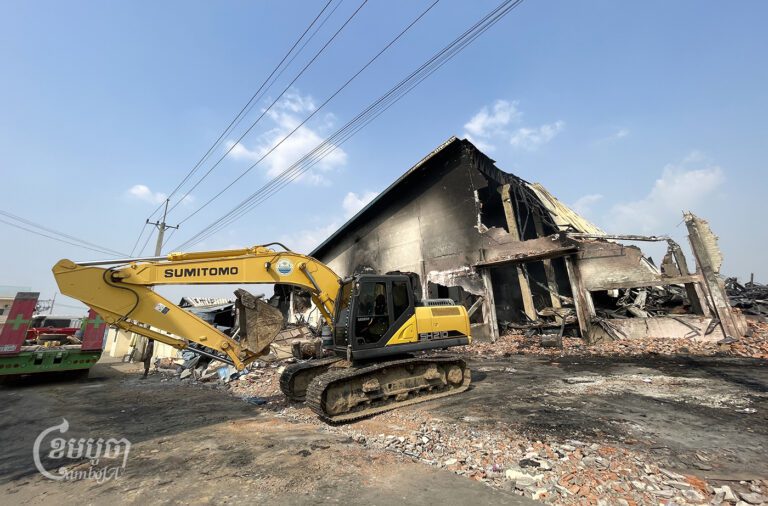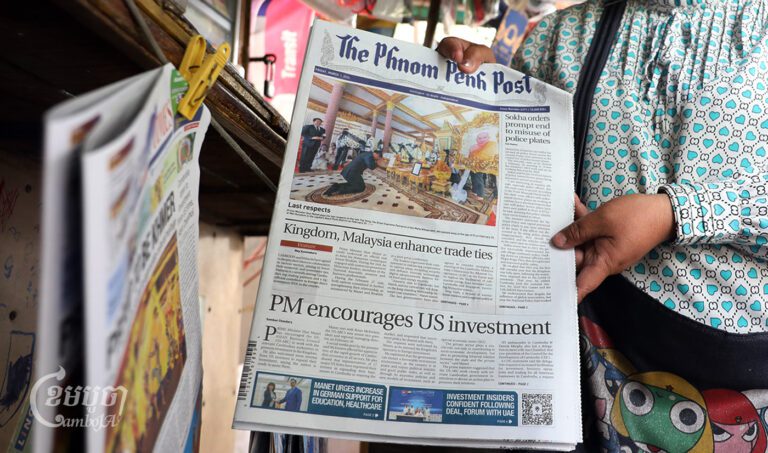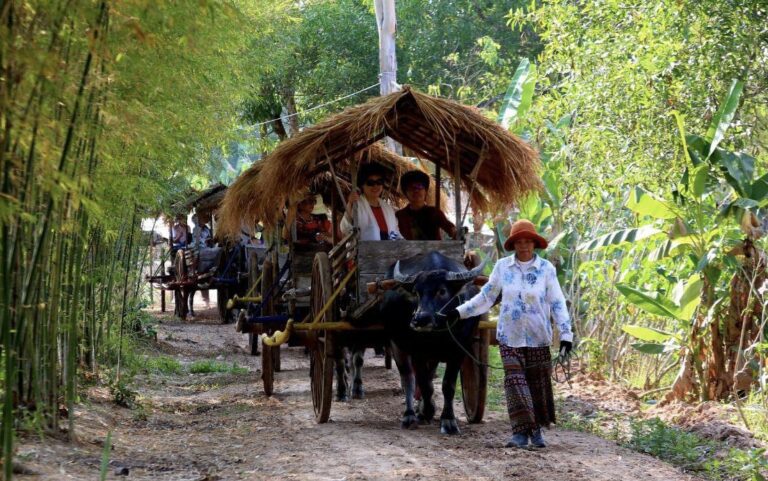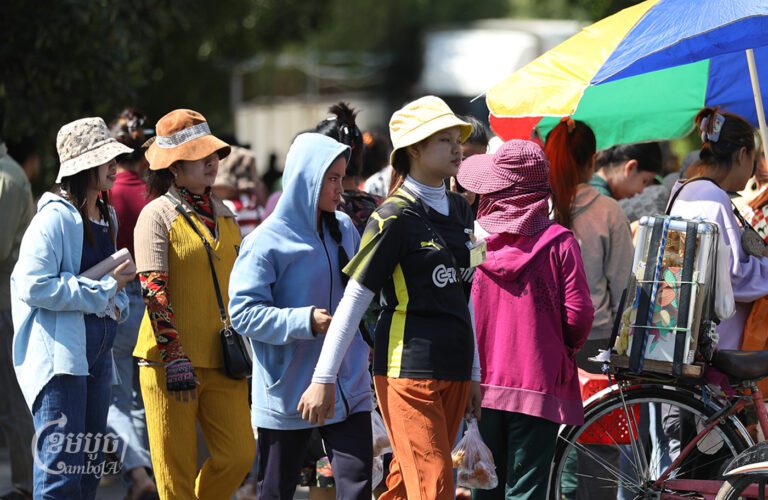Fifty garment factories suspended their operations — affecting the jobs of more than 20,000 workers — amid global challenges, the Labor Ministry said.
The suspensions came as the supply of materials from China was cut off amid a coronavirus outbreak there. The supply is now recovering, the ministry and employers said, even as the number of coronavirus patients ballooned in Cambodia over the past week.
Heng Sour, the ministry’s spokesman, said the factories had suspended work for 20,940 employees, including 16,183 women.
“Fifty factories suspended [operations], including eight factories Phnom Penh and nine factories in Kampong Speu province,” Sour said.
Many of the factories had only partially suspended their operations, with the 50 factories employing 53,000 workers total, he added.
The ministry was coordinating trainings for the suspended workers, and those who participated would receive 20 percent of their salaries from the government in addition to 40 percent from factory owners, Sour said.
Van Sou Ieng, president of the Garment Manufacturers Association in Cambodia, said the number of factories reducing production was fewer than the association had anticipated. And raw materials were already starting to be shipped from China again, he said.
“About 1,000 containers of raw materials have been sent to arrive in Phnom Penh,” Sou Ieng said. “There will be no more issue or problem.”
At the Dignity Knitter factory in Kandal province, labor representative Phin Sophea said all work had been suspended since March 2, and contracted workers were receiving 50 percent of their pay.
“The factory did not have the goods and raw materials for production,” Sophea said.
The workers were convinced the reduced output was also due to the EU’s February decision to rescind some trade privileges with Cambodia over political and human rights concerns. A partial withdrawal of the duty-free “Everything But Arms” (EBA) scheme is due to kick in in August following the widely criticized disbanding of Cambodia’s main opposition party.
Labor disputes at Dignity had begun in December — before the shutdown of Chinese suppliers — as management was already trying to cut jobs at the time, Sophea said.
At other factories, workers said concerns were mounting about coronavirus as well as the loss of business with the EU, and called for employers and the government to take more proactive action.
Luy Eng, 40, who works at Eastex Garment in Phnom Penh’s Pur Senchey district, said workers wondered whether it was safe to continue to work at the factory when the government was closing down schools and entertainment business amid a rise in coronavirus cases.
“The government or factory owners should provide hand sanitizers and thermometers for workers,” Eng said. “Workers are for now just wearing masks.”
The factory, which exports primarily to the EU, including H&M branded apparel, had been cutting its workforce by hundreds by not renewing short-term contracts, Eng said. On Monday, however, workers had been asked to work extra hours, suggesting a return of raw materials, she said.
Man Seng Hak, vice president of the Free Trade Union, said a spread of coronavirus through garment factories could be devastating.
“The government should take measures at garment factories to prevent Covid-19, because if we are careless with them, it will spread more and more widely,” Seng Hak said, referring to coronavirus.
Garment workers were wearing masks at the factories, but in general factories had not made hand sanitizers and thermometers to check for fevers available, he said.
Collective Union of Movement of Workers president Pav Sina echoed the sentiment, saying factories were large gatherings of people and therefore represented areas of high risk.
“Please, consider our safety too,” Sina said.
Preap Monysovann, the union’s secretary-general, added that it was too soon to say whether production would recover to previous levels, as the shipments of materials from China were still minimal.
“The import of raw materials on seven ships so far is not yet enough for the factory sector, though it can supply some factories,” Monysovann said.
He added that the Labor Ministry’s requirement for workers to join trainings to receive 20 percent of their pay from the government was too difficult for many workers to fulfill. The cost and hassle of traveling to training centers was a particular concern, he said.
The government should either provide the trainings at the suspended factories or give the 20 percent without requiring attendance at trainings, he said.
According to the Health Ministry, the total number of coronavirus cases in the country has risen to 47.
| No. | City/Province | Total case | Recoverd | Deaths |
| 1 | Phnom Penh | 10 | 0 | 0 |
| 2 | Kampong Cham | 9 | 0 | 0 |
| 3 | Battambang | 6 | 0 | 0 |
| 4 | Kep | 4 | 0 | 0 |
| 5 | Tbong Khmum | 4 | 0 | 0 |
| 6 | Kampong Chhnang | 3 | 0 | 0 |
| 7 | Siem Reap | 2 | 0 | 0 |
| 8 | Preah Vihear | 2 | 0 | 0 |
| 9 | Banteay Meanchey | 2 | 0 | 0 |
| 10 | Kampot | 2 | 0 | 0 |
| 11 | Preah Sihanouk | 1 | 1 | 0 |
| 12 | Koh Kong | 1 | 0 | 0 |
| 13 | Kandal | 1 | 0 | 0 |
| Total | 47 | 1 | 0 |
The 47 cases are made up of 28 Cambodians, 11 Malaysians, three British, two French, one Chinese, one Canadian and one Belgian, the Health Ministry said.
Cambodia has more than 1,000 garment factories, with the employers association saying the sector employs about 850,000 workers in total.


